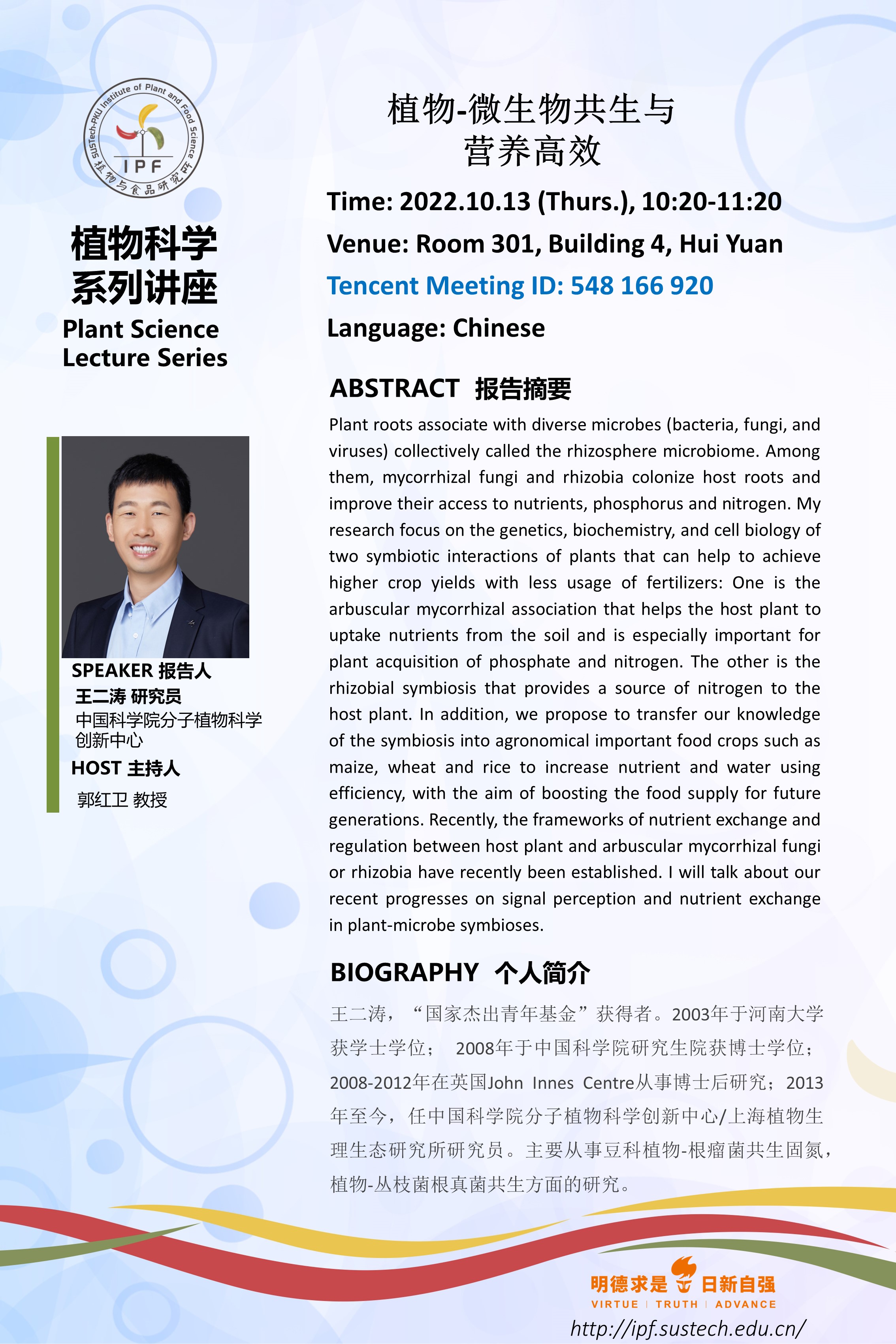
主讲人: 王二涛 研究员
时间: 10月13日(周四)10:20-11:20
地点: 腾讯会议 548 166 920
题目:植物-微生物共生与营养高效
主讲:王二涛 研究员 (中国科学院分子植物科学创新中心)
时间:10月13日(周四)10:20-11:20
地点:腾讯会议 548 166 920
报告摘要:Plant roots associate with diverse microbes (bacteria, fungi, and viruses) collectively called the rhizosphere microbiome. Among them, mycorrhizal fungi and rhizobia colonize host roots and improve their access to nutrients, phosphorus and nitrogen. My research focus on the genetics, biochemistry, and cell biology of two symbiotic interactions of plants that can help to achieve higher crop yields with less usage of fertilizers: One is the arbuscular mycorrhizal association that helps the host plant to uptake nutrients from the soil and is especially important for plant acquisition of phosphate and nitrogen. The other is the rhizobial symbiosis that provides a source of nitrogen to the host plant. In addition, we propose to transfer our knowledge of the symbiosis into agronomical important food crops such as maize, wheat and rice to increase nutrient and water using efficiency, with the aim of boosting the food supply for future generations. Recently, the frameworks of nutrient exchange and regulation between host plant and arbuscular mycorrhizal fungi or rhizobia have recently been established. I will talk about our recent progresses on signal perception and nutrient exchange in plant-microbe symbioses.
个人简介:王二涛,研究员,博士生导师,“国家杰出青年基金”获得者。2003年于河南大学获学士学位; 2008年于中国科学院研究生院获博士学位;2008-2012年在英国John Innes Centre从事博士后研究;2013年至今,任中国科学院分子植物科学创新中心/上海植物生理生态研究所研究员。主要从事豆科植物-根瘤菌共生固氮,植物-丛枝菌根真菌共生方面的研究。建立以脂肪酸为核心的丛枝菌根共生中营养交换与调控的理论框架;发现植物的菌根因子受体,阐明植物识别共生微生物的分子基础;揭示豆科植物根瘤发育“奠基细胞”形成的分子机制等。研究成果以通讯作者发表在Cell, Science, Nature, PNAS等国际主流学术期刊上,是国际植物-微生物共生研究领域的前沿探索者。任Plant Cell, Science Bulletin, New Phytologist等学术期刊编委,中国植物生理与分子生物学学会青年工作委员主任,上海植物生理与分子生物学学会秘书长。获2014年“国家自然科学奖二等奖”, 2018年“中国青年科技奖”,2019年“CSPB杰出青年科学家奖”,2020“科学探索奖”和2021年“谈家桢生命科学奖”等。